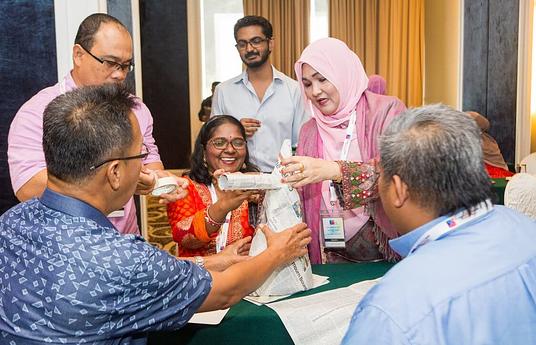Science and Cooking aims to create a generation of curious minds. Individuals who can tackle situations and challenges, and make better choices for themselves. To drive these qualities into children and to get them practice their scientific temperament, we use cooking as the medium.
Cooking is a sensory experience which enables us to see, smell, taste, feel, and hear our experiments and instantly get results. It requires planning, observing, wondering what went wrong, and experimenting. Food and cooking is also something we can share with others, which makes it social experience along with an intellectual, emotional, and physical experience.
This is a program where children learn through the processes of observation and experimenting, with food as a medium. They study how different ingredients work, their properties and origins, and use this knowledge to create unique recipes of their own.
It provides the freedom and opportunities to the students to tinker around with the ingredients, equips them to work with the resources, and create something of their own. The activities in the program helps them understand origins, properties, interactions with other edible or non-edible items, significance - historical, geographical, chemical, biological, political, along with learning the basics of the ingredients, processes, and methods of cooking. This enables them to get a deep understanding of what they learn in books.
It is a hands-on experiential learning course, designed to provide children with opportunities to learn about the world and its ways. The program uses the most universally accessible component of life to carry out these lessons - FOOD.



